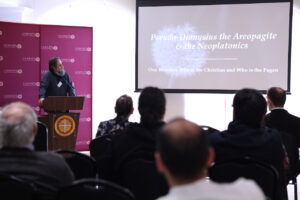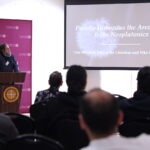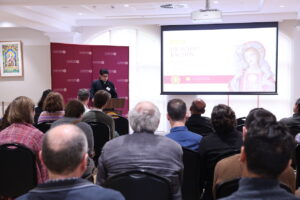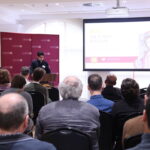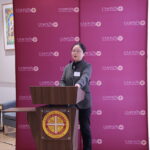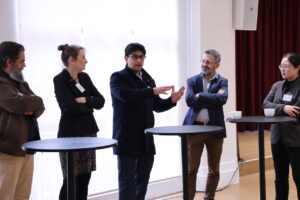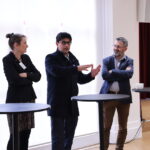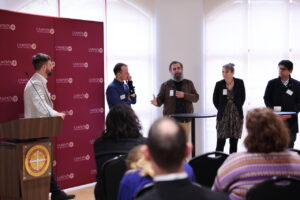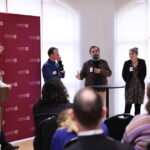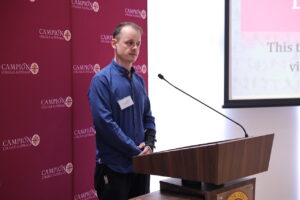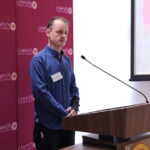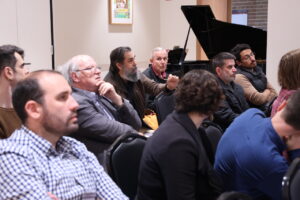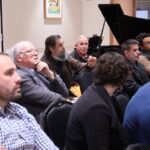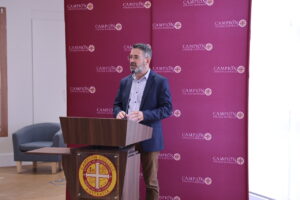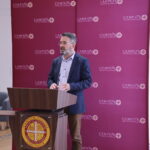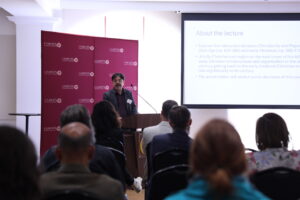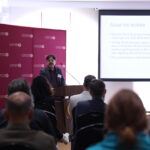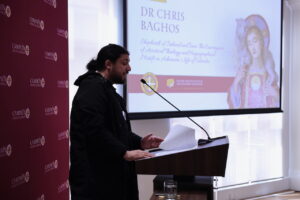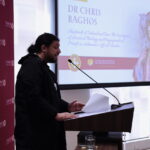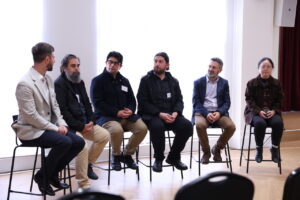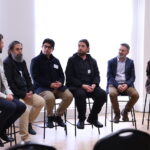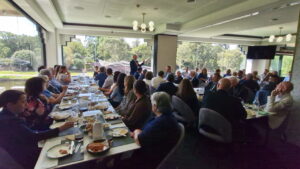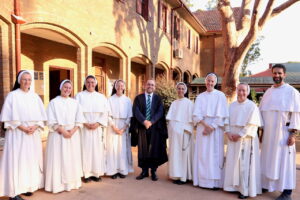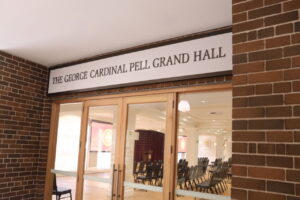Campion College Hosts ‘Shepherd at the Crossroads’ Symposium on Early Christianity
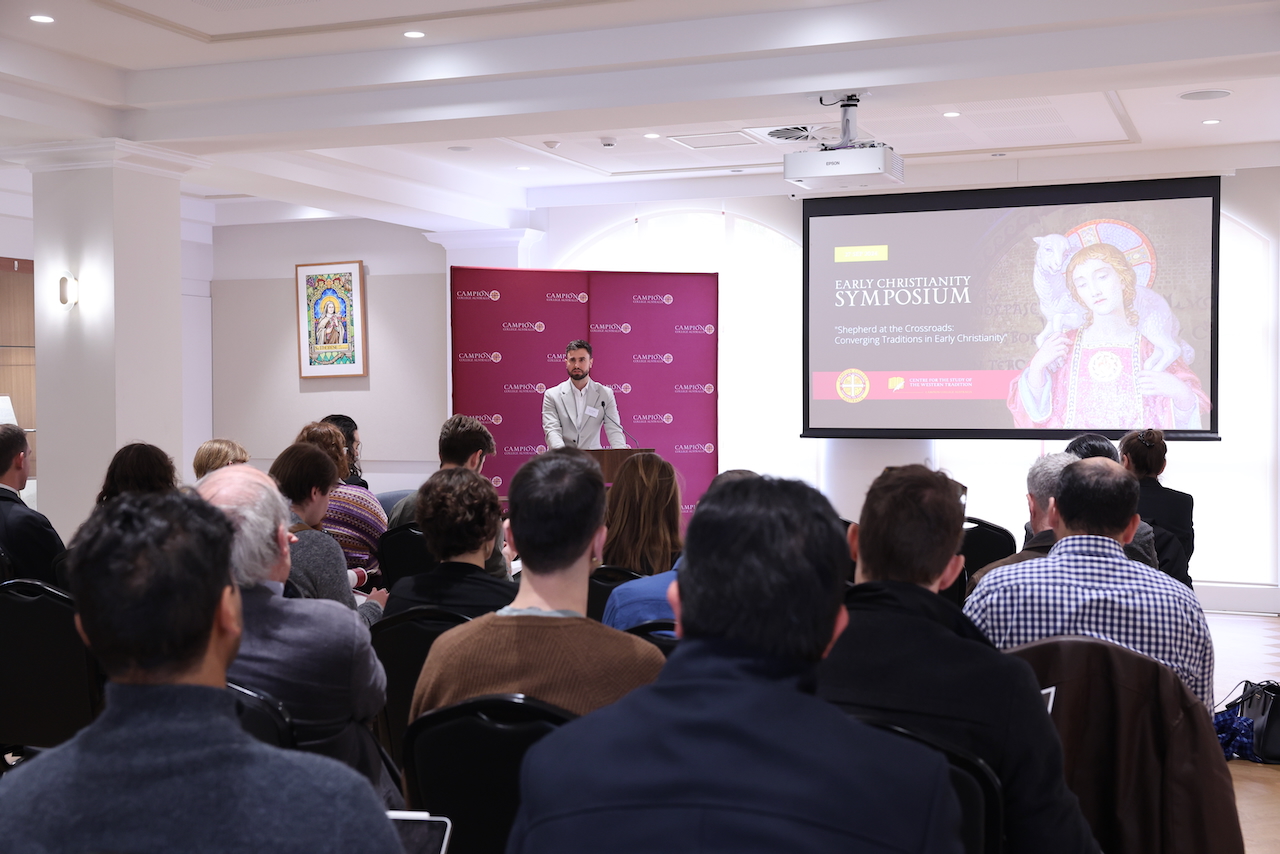
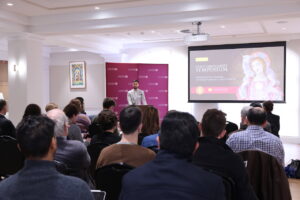
On September 27-28, 2024, Campion College’s Centre for the Study of the Western Tradition hosted a two-day symposium titled "Shepherd at the Crossroads: Converging Traditions in Early Christianity". Held at the college’s Grand Hall, the event attracted a distinguished lineup of speakers and attendees, including scholars, students, and members of the public, all eager to explore the multicultural and multi-traditional character of early Christianity.
In his welcoming address, symposium convenor Mr Mark Matic set the tone for the event by emphasising the early Church’s global and inclusive nature. “The idea of a global Christianity is not modern, but lies at the very roots of the Christian faith. Jesus of Nazareth was indiscriminate in his spreading of the good news, tending not only to people of all social classes, but cultural groups that many considered alien and unwelcome in first-century Judea,” he said. This spirit of inclusivity, Matic continued, extended to the Apostles, who were driven to “connect with and challenge people of different creeds, often at great cost to their personal safety.”
Over the two days, nine speakers presented papers on the convergence of cultural traditions in early Christianity, exploring how the Gospel spread across the Mediterranean, the British Isles and the Near East. Matic highlighted the enduring legacy of this era: “Over the next millennium, the myriad cultures of the Mediterranean and its hinterlands slowly joined the flock. Greeks, Romans, Egyptians, Ethiopians, Syrians, Armenians, Franks, Celts, and Slavs—these are but a few of the first peoples to be changed by Christ, but not beyond recognition. The world of Alexander and Augustus did not die with the conversion of Constantine. The rhythms of Homer and Sappho were not lost amid the singing of psalms. The Parthenon and Pantheon still stand, and both at some point were repurposed as churches. This amalgamation of the Christian and pre-Christian abounds in late antiquity and has been with us ever since - in our languages, literature, images, music, architecture and institutions."
For those unable to attend, recordings of the presentations are now available:
- Dr Vassilis Adrahtas | “Pseudo-Dionysius the Areopagite and the Neoplatonists: One Wonders Who is the Christian and Who is the Pagan” (KEYNOTE)
- Dr Chris Baghos | “Shepherds of Ireland and Iona: The Convergence of Ascetical Theology and Hagiographical Motifs in Adomnán’s Life of Columba”
- Dr Danijel Džino | “Christianity and Paganism in Dark Age and Early Medieval Dalmatia”
- Dr Kevin Wagner | “Patristic Reception of Jewish Liturgical Texts: The Tabernacle”
- Dr Lydia Gore-Jones | “Solomonic Literature: Jewish, Hellenistic and Christian”
- Dr Mario Baghos | “Might Unassailable? Walls, Gates, and the Marble King of Byzantine Constantinople”
- Dr Lyn M. Kidson | “A Citizen of Empire or Citizen of the World? Paul’s Textual Identities as a Roman Jew and Greek Christian”
- Mr Gabriel Jower | “Infanticide or Indifference? Disentangling the use of ektithе ̄ mi andekballō in Patristic and Documentary Greek”
- Mr Mark Matic | “Barbarism Begins at Home: Revelation, Dionysius of Alexandria, and the Greek Prescriptivist Tradition”
Complete the form below to access the recordings:

